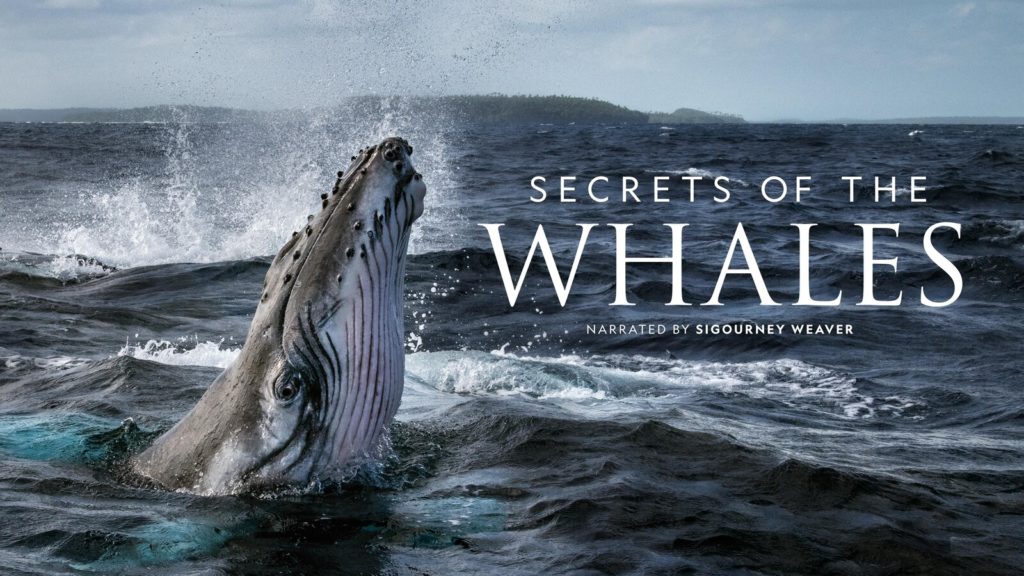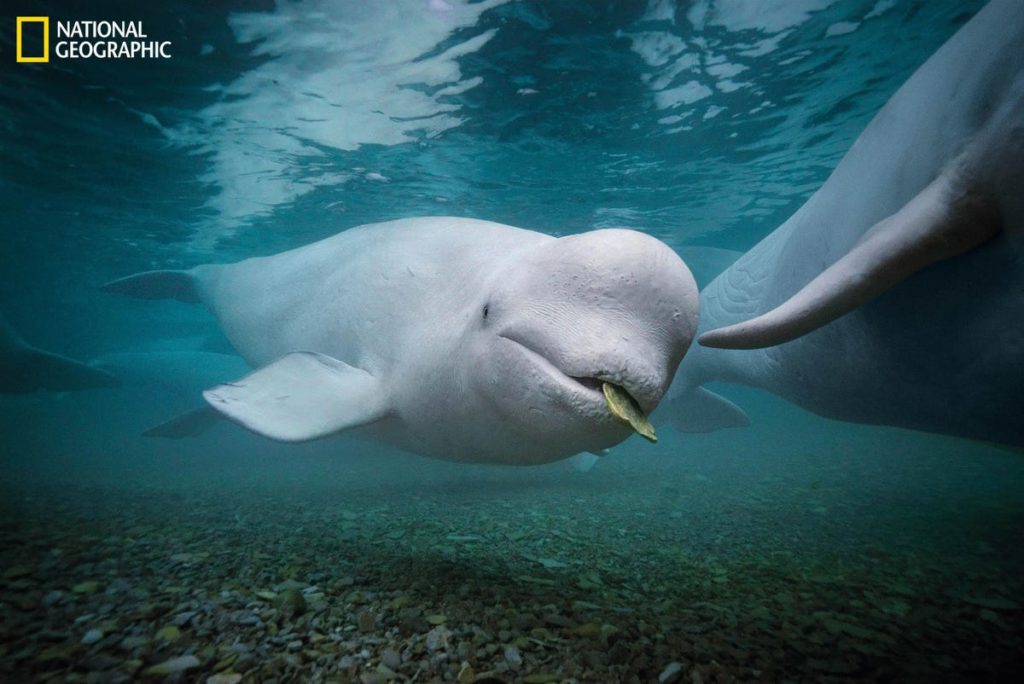‘Secrets of the Whales’ review: up close with the world’s most fascinating creatures

Whales are the most fascinating creatures on the planet. Understanding their lives and the complexity of each different species always seemed like something unreachable, like knowledge that could only be acquired through boring books, obscure documentaries or mere speculation — until National Geographic partnered with Disney+ to make “Secrets of the Whales.” This is one of the most intimate and prolonged interactions ever recorded with the gentle giants, taking over three years to film in 24 different locations. The efforts tackled by the production crew as well as the lead explorer and photographer, Brian Skerry, are both admirable and worthy of gratitude.
It’s impossible to watch the whales in action and not be moved by their beauty. No combination of adjectives would be enough to describe what these creatures accomplish simply by existing. “Secrets of the Whales” is a celebration of the world’s largest mammals that captures not only all that we have in common with them but also how they stand out as a unique and almost alien species that is far more advanced than we expect.
The oceans are theirs and we’re just spectators. Tiny in comparison and adorable in their eyes. Whales do not attack humans but are just as fascinated with us as we are with them. The documentary shows how some whales seem to be able to recognize humans as other intelligent creatures and treat us with due respect. This shouldn’t be surprising as they are some of the most empathic animals alive today. One of the most memorable moments of the documentary was in episode one, “Orca Dynasty” when Skerry experienced an extraordinary interaction with an Orca mother. After hunting and feeding her pod, she spotted Skerry swimming close to her and purposefully offered him a dead stingray for him to eat. She most likely thought he was too skinny and worried for his health. The orca waited for Skerry to eat it, but as he stayed still long enough for her to understand he wasn’t interested, she picked up the stingray and swam away with it. Hunting is by no means an easy task for Orcas even if they are the ocean’s apex predator. It is a complex process that requires training, patience and great skill. Her willingness to share her meal with another species just shows how remarkable and intelligent whales are. I would’ve never discovered those capabilities without this documentary.

Another fascinating discovery was their culture. Whales teach their young how to hunt and communicate, and those teachings are passed on from generation to generation, building a rich heritage that is endangered today by humans and their damaging practices. We have confirmation that culture isn’t exclusive to human beings. One pod of sperm whales has different hunting methods than a different pod of the same species that lives elsewhere. Orcas from different pods can build friendships with each other that last over decades, letting them meet up every year at the same place on Earth just to hunt together and part ways later.
The amount of research behind the documentary is as astonishing as the close-ups of whales in their habitat. Teams of scientists helped built an informative and compelling script that completed the documentary and let viewers step into the world of whales without being overwhelmed by information. The impeccable delivery by Sigourney Weaver made it a soothing listening experience that matched the calm but intense nature of whales.
It’s necessary to support filmmakers and scientists like the ones behind ‘Secrets of the Whales’ who are sharing nature’s magnificence with the general public in such rich visual experiences. Documentaries and eco-friendly whale-watching tours are the right ways to appreciate these amazing animals and their way of life. Boycott SeaWorld. Watch more documentaries. Whales belong in the oceans, not in amusement parks that profit from animal suffering and keep intelligent creatures in the most precarious and depressing conditions. Hopefully, the documentary will also invite viewers to protect the oceans and actively change their behaviors to minimize the contamination that threatens marine life today. After all, we must take care of the most fascinating creatures on the planet, and also their home, the ocean that has given so much to us.


























